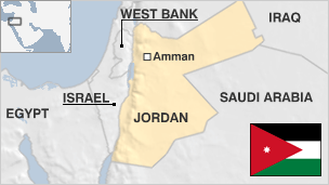
Facts and stats about Jordan
- Agriculture 127
- Background 10
- Conflict 2
- Cost of living 53
- Crime 78
- Culture 23
- Economy 3053
- Education 464
- Energy 679
- Environment 227
- Geography 84
- Government 185
- Health 303
- Import 5
6.48 million
Population. Ranked 104th in 2013.
$4,945.13
GDP per capita. Ranked 91st in 2012.

88,240 sq km
Sq. km. Ranked 107th in 2008.